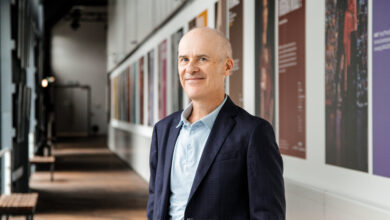Guide fights ageism through language

An advocacy group has released a manual for aged care workers to help reduce the impact of ageism on residents.
The guide from EveryAGE Counts hopes to assist workers in preventing and addressing ageist attitudes affecting older people through language.
Ageism is stereotyping against people based on their age and negatively affects people's health, reducing someone's life expectancy by up to 7.5 years.
EveryAGE Counts advocacy campaigner Joel Pringle says age stereotyping erodes unity between generations and devalues the acknowledgement of people as a person.
"Ageist attitudes stem from our own fear of becoming older," Pringle says.
"We respond by distancing ourselves from that idea of 'becoming older', and we project that negativity onto older people.
"But those fears are generally based on myths about what older life looks like."
From age four, we become aware of stereotyping through mediums such as language, which guides our feelings and behaviour towards people of other generations.
Pringle says people tend to falsely believe they'll lose control and agency over their minds and bodies as they age.
For example, people who think loneliness, depression and poor health are normal aspects of ageing are less likely to seek medical help, exacerbating their condition.
Controversially, people with positive beliefs about ageing are at a smaller risk of developing age-related diseases like dementia.
"When we believe in these myths, we've lowered our own expectations of life," Pringle says.
"We might not push for health treatment we otherwise have a right to, or we won't be as active and engaged in our community.
"That's all because of the transfer of attitudes from people around us to ourselves – and that's where aged care workers can interrupt that process."
EveryAGE Counts says ageism is the main driver behind failures, including neglect and abuse cases, in aged care settings.
So, the guide was created to take 'ageism out of aged care' and provide directions on what language to use best when interacting with older people.
For example, when referring to older people, they suggest it's best not to use phrases such as 'the elderly' or 'the aged'.
Pringle says language is never neutral and that the way we talk about and interact with older people matters.
"Despite our best intentions, we can all fall into the trap of ageist language by some social attitudes that we've absorbed," he explains.
"If we are aware of it, we can actually use our language to undermine ageism and improve older people's lives."
The language guide was developed in collaboration with one of Australia's major health networks Brisbane North PHN and not-for-profit aged care association healthy@home consortium.
In their research, EveryAGE Counts found ageism was most prevalent in aged care, healthcare, workplace and community settings.
But Pringle says age stereotyping is a persistent phenomenon that is 'deeply ingrained in our society.'
A 2021 study found that 90 per cent of Australians believed ageism existed in society, of which 83 per cent agreed it was a problem.
Over 60 per cent of people reported they experienced this form of prejudice in the past five years.
Pringle hopes the guide will clarify and improve understanding of how ageism affects people of all ages.
"Ageism hasn't necessarily been increasing, but awareness of ageism has," he says.
"And also the awareness of the negative impacts it has on older people."
Email: [email protected]






I take issue with the term “older people/person”. It’s been used extensively throughout the Revised Aged Care Standards draft publication, which has prompted much discussion recently.
I discussed this term in particular with some “older people” who voiced their dislike of being referred to this way. An issue was raised in that sometimes we have staff in our Aged Care facility who are “older” than some of our residents. We feel it’s not an appropriate term.
It’s a given that if a person is receiving care in an Aged Care Facility, that they are “older people”, especially since residents are not allowed to be admitted if they are under 65yo under the recent legislation to provide disability services instead to younger people living in Aged Care. The people I spoke with would like to be referred to as “people” or “care recipients” instead.